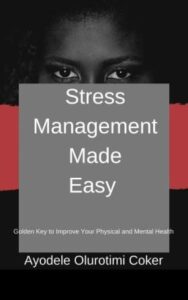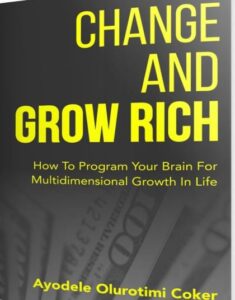What We Shall Discuss In This Programme
- What is Emotional Intelligence?
- What is Emotion, Mood and Affect?
- Five Types of Emotional Intelligence
- Emotional Intelligence and Leadership
- Emotional Intelligence and Management
- Emotional Intelligence and Perception
- Emotional Intelligence and Communication
- Conclusion
Definition of Emotional Intelligence (EI)
Emotional Intelligence- capacity to be
Aware, Express & Control your Emotions, and handle interpersonal relationships Caringly and Compassionately
What is Intelligence (EQ)
It is how you utilize your emotional power to make decisions, solve difficult tasks, and communicate positively with emotions of others around you.
- How you use your emotions to handle your intra & interpersonal relationships empathetically
What We Stand To Gain….
- EI is blend of the thinking faculty & your emotions
- How to develop & use them to assist in terms of:
- Resilience & emotional endurance
- Motivation to take positive decisions
- Empathy for everyone around you
- Creative use of inductive & deductive reasoning,
- Improved intra & inter-personal communication & relationships
- Enhanced ability to quickly interpret & overcome embarrassing difficult social situations and conflicts
- EI will greatly improve your
- Communication Skills
- Leadership & Management skill
- Task & Problem-solving,
- Enhanced relationships within the workplace
- EI -a skill that any worker can acquire with training and practice
Benefits…
- Better Team-Work. (Makes you a great team member)
- Creates a Better Office Environment. …
- Adjustments Can Be Made Easier. …
- More Self-Awareness. …
- More Self-Control. …
- Compassion for colleagues . …
- Better Time Management . …
- Motivation to Achieve Organisation Objectives
- You will be able to Identify your feeling & emotions always
- You will know how to interpret & regulate your emotions
- Understand how your emotions can impact others
- You will be able to recognise, understand & manage other people’s emotions which will eventually make you to have a rich and balanced personality
Manifestations of Emotion
- Emotion –is a subjective feeling experience that leads to
changes in behaviour
Emotion has 3 components:
- Physiological Component –changes in heartbeats/respiratory/BP
- Behavioural Component –changes in attitude and character
- Cognitive Component –thinking pattern from beliefs
Emotions That We Use at Work
- Negative Emotions
- Anger: outrage, resentment, wrath, vexation, annoyance,
- Fear: anxiety, nervousness, dread, fright, panic, phobia
- Surprises: shock, amazement,
- Sadness: grief, sorrow, gloom, depression
- Disgust: contempt, disdain,
- Shame: embarrassment, humiliation
Positive Emotions
- Enjoyment: happiness, joy, delight
- Love: acceptance, friendliness, trust,
The 5 features of EI
- Self-awareness
- Self-regulation
- Empathy
- Motivation
- Social skill
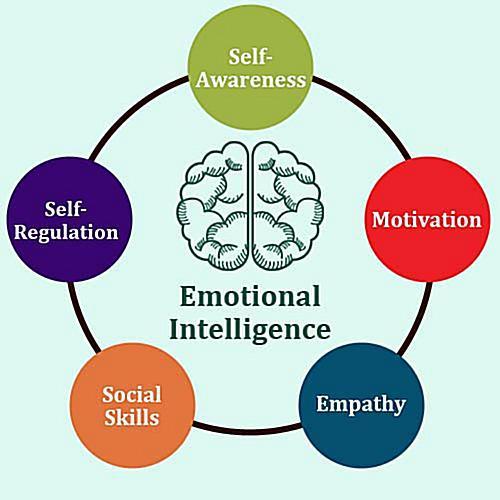
Self-awareness
- The ability to recognise & be aware of your emotional strengths & weaknesses
- How they affect you & the emotions of other team members
- It will assist you to improve your effectiveness & performance
Self-regulation
- How to control & regulate your emotional impulses effectively
- Responding to disturbing situations calmly; your communication is more effective when you’re in this state and this feeling will spread to others.
- For example, rather than screaming at a junior staff when stressed, you can just laugh away the stress and delay the anger emotions
- It will help you earn more respect and trust of your team members
Empathy
- Ability to recognise & identify other peoples’ emotions
- You will develop passion & compassion for others around you
- Always imagine yourself in someone else’s position by listening empathically to your team members without interrupting them.
Self-motivation
Ability to motivate yourself to enjoy what you do & motivate others to achieve their personal & organisational goals
Increases self-confidence, keeps you motivated during setbacks
Makes you focused towards your vision & mission statements
Social Skills (Social Intelligence)
- Ability to initiate & sustain social relationships with team members
- Helps to build friendly & effective rapport with team members
- Members will feel comfortable discussing with you socially
- Attend social functions of team members to socialise with them
Leadership, Management and Emotional intelligence
What is Leadership?
- Leadership-process where the Team Leader influences behaviours of team members towards the attainment of the vision & mission statements of the organisation without cohesion
- Team Leaders-must therefore know vision & mission statements of their Ministries & plans towards their Attainment without forcing anybody
What is Management?
- Management is the process of achieving strategic vision & objectives of the Ministry by engaging in these four major managerial functions:
- Planning
- Organising
- Leading
- Controlling
Plan…
- Planning –set a vision & PLAN how best to achieve the vision through your mission statements
- Vision –Mainobjective of your department or ministry
- Mission Statement –statements & scope of operations on how to achieve the vision
- Have your own personal vision & mission statements that should be in tandem with the values of your ministry
Organise
- Organise –
- Organisingall resources strategically to achieve the vision or set objectives
Delegation with authority & responsibility
- Accountability –you must be accountable to all the resources of the department or organization
Leading
Leading –process of influencing team members to achieve organisational vision
- Leadership concepts include:
- motivation,
- communication,
- team building & dynamics,
- interpersonal relations,
- negotiation
- Time, change &
- stress management
Control…
- Controlling –process of regulating activities of team members to increase effectiveness & performance to achieve the vision of the organisation
–Control Methods
-Budgetary Control
-Quality Control
-Inventory Control
Team Member with Great EI
He must recognise & appreciate others
Ask for opinions of members
Genuinely interested in welfare of others
When you help members to achieve their personal goals;
in return they will also help him/her to achieve his goals.
EI and Vision of Your Department & Organisation
- Quality Service Delivery,
- Increased Effectiveness & Productivity
- Enhanced Interpersonal-communication
- Application of Information Technology
- Capacity Building for Team Members
- Providing Leadership with Fantastic EI
Departmental & Organisational Vision
- Smart
- Specific
- Measurable
- Achievable
- Realistic
- Time Bound
Team Member With Fantastic EI
- Have excellent communication skills by listening attentively to others
- Listening is where good communication begins
- Have adequate intra communication skills
- & fantastic inter-personal relationship skills
- He must be dependable, has integrity, & tolerant
Team Member With Fantastic EI
He must be creative in giving suggestions, & directions
- Ready to repeat instructions & allows for expression of ideas & feelings of team members
- Members can predict their leader’s emotions & one another’s emotions.
- Every team member is a major stakeholder,
- He believes that all members are equally endowed
EI And Inter-personal Relationships
- A fantastic team member must emotionally connect with others through:
- returning phone calls,
- Remembering first names,
- Remembering birthdays
- Celebrating achievements.
- Always shows empathy to team members
- He/she must always recognise the valuable roles of other team members and also respect them
Team Leadership and Perception
- A team consists of workers with different perceptions
- Perception determines how members relate to one another
- We see the world the way we think & feel
- When a member disagrees with you, you may believe something is wrong with him; however, you may be the one with the issue
- Take a look at this picture -what do you see?
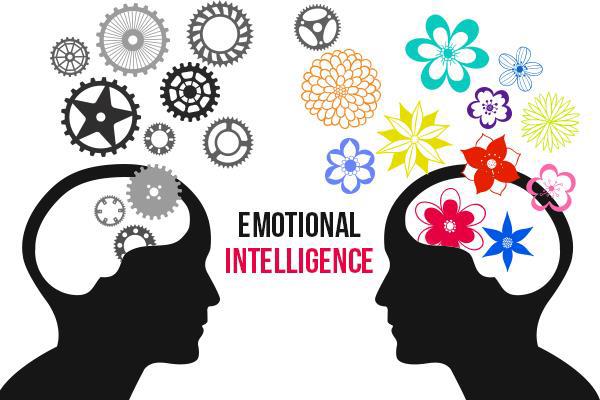
EI & Perception: Understand things from the other person’s point of view (Win/Win)
EI and Team Perception
- This is picture explains why two people can see the same thing and disagree with one another and both of them will be right.
- These perceptions sometimes are not logical but psychological
- That is how one can have a Win/Win situation
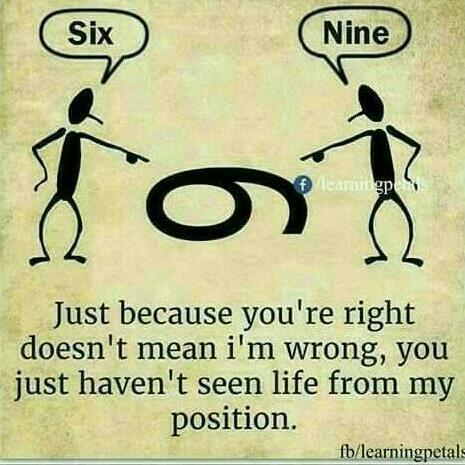
EI and Communication
Listening is the most important as regards team communication
Good listening skill is where effective communication begins
Listening requires attention, concentration & empathy
- Listen to subordinates, clients, customers; spouses, children & critics.
EI helps us to look at issues from their other people’s perspectives
- We must encourage members to express their ideas fully when communicating with us
- We must listen to each other effectively
- Eye Communication–look into the eyes of patients
- Body language –posture, gestures & facial expressions
- Dressing-the way you dress, you will be addressed
- Tone of voice –don’t shout at colleagues or subordinates
- Listen to all feedbacks –from team members attentively
- Humour–crack jokes with team members to make them feel relaxed
Nobody must shout at team members
If you shout at a member, you are dehumanising the member
The “dehumanised” member may in turn derail your vision
It may ruin your inter-personal relationship with members
As team members, be slow to condemn, quick in our praises and constructive in criticisms
EI & Humour Therapy
- You can learn to be happy at all times, even during stressful periods; key to EQ skills
- Laughter -the medicine of all ailments.
- It relaxes the brain &body
- You cannot be happy and sad at the same time
- Increase immunity & prevent infections.
- Laugh at yourself, at your mistakes and frustrations
EI & Benefits of Physical Fitness
- It increases stamina & endurance
- It lowers heart rate & reduces Blood Pressure
- You will develop strength and personal power to go after difficult goals
- You will be physically & mentally fit to handle departmental & personal stress
- It increases immunity against mild infections
EQ and Relaxation Techniques
Be alone at least 30 minutes everyday to meditate
Inhale for 5 seconds;
hold breath for 5 seconds
Exhale for 10 seconds through the mouth slowly with pursed lips
EQ and Mindfulness?
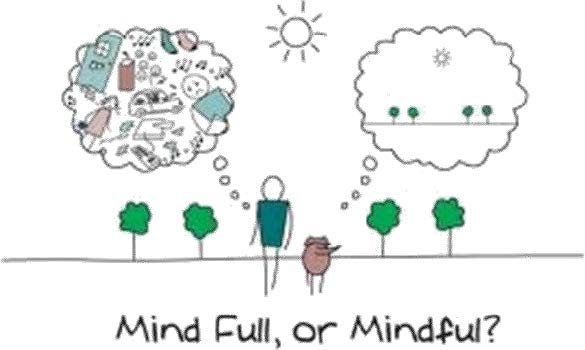
Benefits of Relaxation
- It can quickly relax your tensed muscles
- Replenish lost energy thereby refreshes your body
- It can be practiced anywhere for about 30 minutes
- It can be used to cure anxiety and panic situations
- If used creatively, can enhance your power of visualization & goals attainment.
When is the time to acquire Emotional Intelligence skills?

Conclusion
- The acquisition of the skills of Emotional Intelligence will significantly develop your effectiveness & performance not only at the departmental level, but also in your organisation, in your nuclear and extended families too
- Your self-esteem, self-worth, social skills, intra & interpersonal communication and relationship skills will be impressively enhanced.
- Management is actually searching for those with enhanced emotional Intelligence to promote to the next level of promotion
BOOKS BY AYODELE OLUROTIMI COKER
